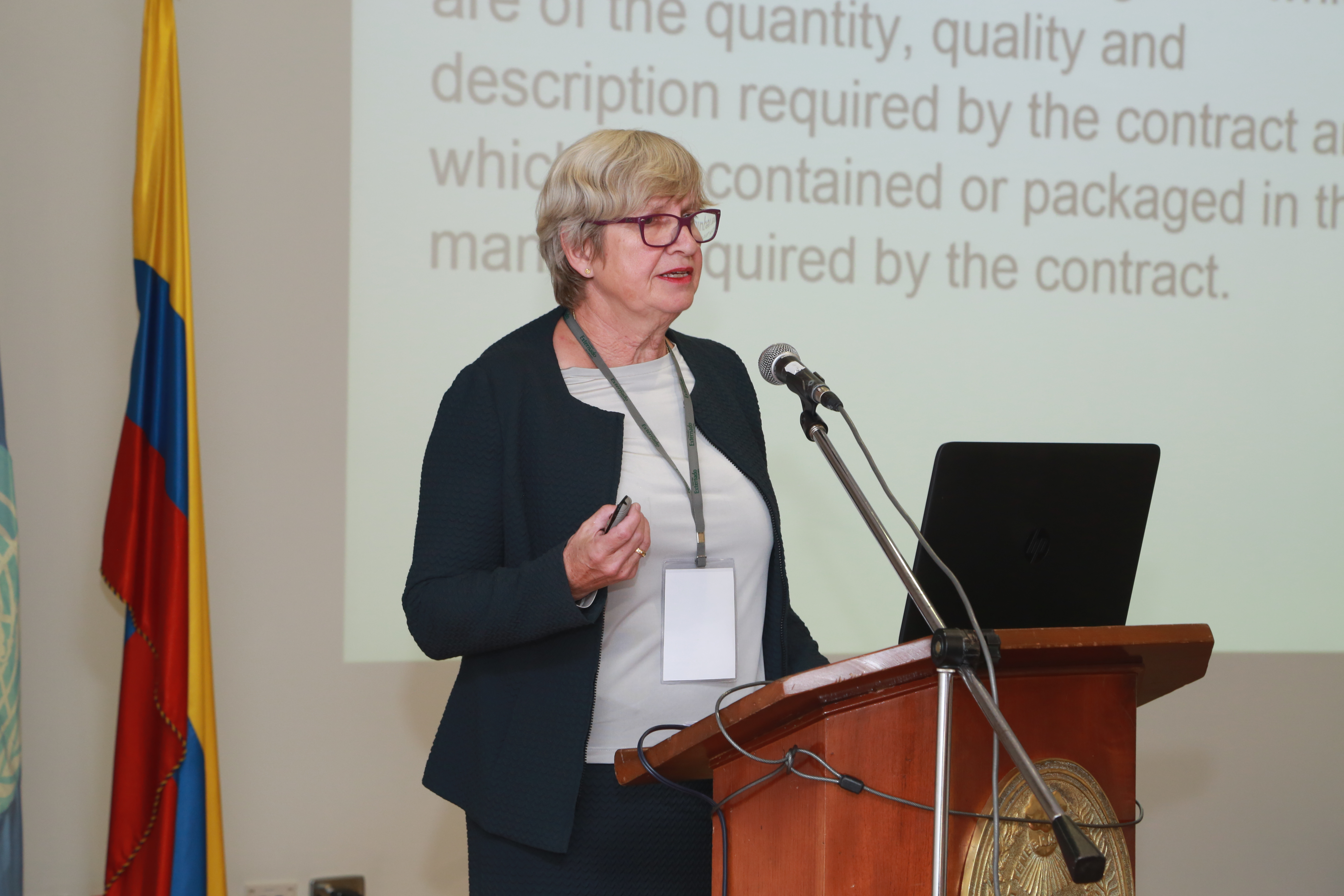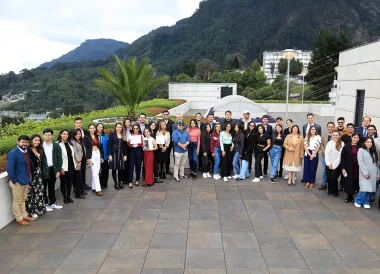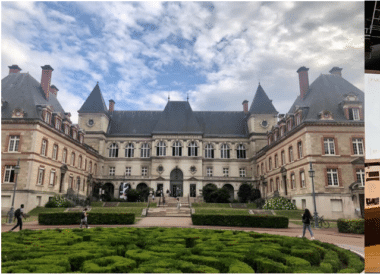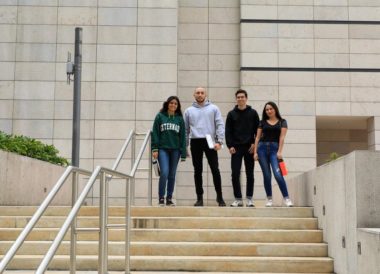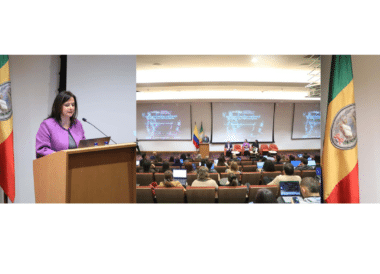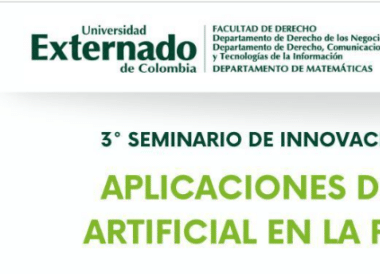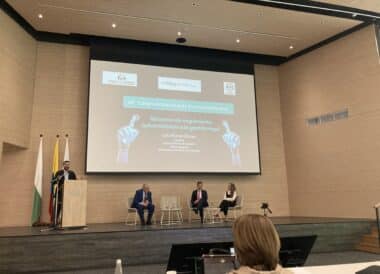Generales
17 de noviembre de 2015
Interview: Prof. Ingeborg Schwenzer
Last October, the CISG-AC members met, for first time, in a Spanish speaking Latin-American country. We were honoured that this happened in Colombia at Externado University. In the visit, Tatiana Segura interviewed Professor Ingeborg Schwenzer, Chair (CISG-AC). Prof. Schwenzer told us about her background, her role as chair and future work of the AC.
Last October, the CISG-AC members met, for first time, in a Spanish speaking Latin-American country. We were honoured that this happened in Colombia at Externado University.
In the visit, Tatiana Segura interviewed Professor Ingeborg Schwenzer, Chair (CISG-AC). Prof. Schwenzer told us about her background, her role as chair and future work of the AC.
Soon: Spanish version
Tatiana Segura: The first question is if you could tell us a little bit about your background, and your experience with the CISG, how did you become the chair of the CISG-AC, how did everything start?
Ingeborg Shcwenzer: It started in the back 1970s when I was an assistant actually, and I was taking part in deliberations in Germany of law professors discussing the CISG, which only was done at the Vienna conference in 1980. So, from the beginning I was part of the commentary, first of the German commentary of the CISG, and then of the English commentary, and then I became part of the CISG-AC and in sometime my colleagues asked me to become the chair.
Tatiana Segura: How would you describe your role as chair of the CISG-AC?
Ingeborg Shcwenzer: Well, you know, you are kind of moderating the thoughts and you have to keep track of what people think and in a way you also are the timekeeper too, and you sometimes have discussions going in different ways and then you have to focus on the issues that are important.
Tatiana Segura: Does the CISG has a specific number of rapporteurs permanently or it depends on how many opinions are they writing?
Ingeborg Shcwenzer: Well, we are always, let’s say, discussing at one time from three to four opinions. So they are in different stages and so, I don’t know, maybe you look it up how many opinions we published during the last years.
Tatiana Segura: But currently there are like four rapporteurs?
Ingeborg Shcwenzer: We finished one opinion here in Bogota, and we have three more opinions and we are thinking now asking somebody to do a fourth opinion.
Tatiana Segura: Their main duties are to do the opinion itself? Like the rapporteurs are the ones who write the opinions?
Ingeborg Shcwenzer: The rapporteurs make the draft, and then this draft is discussed within the Council and then the rapporteurs adjust the opinion, but it is the opinion of the Council. And sometimes the rapporteurs do not support everything they have to write.
Tatiana Segura: How are they chosen?
Ingeborg Shcwenzer: By their knowledge, or by the special expertise, rather they have published in the field.
Tatiana Segura: Is there a specific procedure to choose the themes that are going to be developed in each opinion?
Ingeborg Shcwenzer: We gather topics and we discuss them within the AC, and we get the topics also from practitioners.
Tatiana Segura: All AC members are all very well known jurists and lawyers around the world with a very extensive academic background. However, what is the impact and influence of the opinions in the National Courts?
Ingeborg Shcwenzer: There are many, I think almost ten decisions already relying on the opinions of the CISG-AC, and I mean our opinions are not binding but they can be persuasive authority.
Tatiana Segura: How has your professional experience been in the legal world that is mainly a world dominated by men?
Ingeborg Shcwenzer: Actually, whatever I did in my professional life many times I was the first woman to do it. I was the first woman to become a law professor in Switzerland, I was the second woman at the whole University of Basel, so many things I was the first to do it. Still, I mean, this world is very much dominated by man but it is up to us to change this.
Tatiana Segura: What is the importance of the Swiss law when interpreting the CISG? Does it have a significant importance or is it totally indifferent?
Ingeborg Shcwenzer: No, I think there is no domestic law should have importance or influence on interpreting the CISG. That is very dangerous. We should interpret as article 7 suggests we must in regard the international character of the CISG and if it all we look into domestic legal solutions, we should look at them in a comparative point of view. So I think it is very important to have a comparative view on different legal systems and that may help to interpret the CISG.
Tatiana Segura: How has your experience in Colombia been so far?
Ingeborg Shcwenzer: Oh, it has been wonderful. I like the Colombian people very much, they are very friendly and I think it is a very special country and I really hope that it can live in peace in the next decades.
Bogota, October of 2015
Artículos Recientes
¡Ya está disponible el caso! Segunda versión del Concurso Laboratorio de Estrategia Legal #LSL
Invitamos a los estudiantes de pregrado y postgrado de todas las carreras a presentar [...]
Masterclass Legal Operations: Transformando la Función Legal Empresarial de Guardián de Riesgos a Creador de Valor.
El Departamento de Derecho de los Negocios y la Facultad de Administración de Empresas [...]
Conclusión del Proceso de Reforma al Investor-State Dispute Settlement
En la semana del 12 de julio de 2023, durante la sesión anual de [...]
El Departamento de Derecho de los Negocios de la Universidad Externado de Colombia abre convocatoria para la vacante de Asistente de Investigación
¡Sé parte de nuestro equipo de trabajo! Perfil del cargo: Asistente de Investigación Apoyar [...]
Docente del Departamento de Derecho de los Negocios participó en el libro Blanco de la Asociación de Derecho Internacional
La Asociación de Derecho Internacional (ADI), una de la organizaciones más antiguas y prestigiosas [...]
CRYPTO IN COLOMBIA: PROSPECTIVE 2022
By: Daniel Peña Valenzuela The volatility of the main cryptocurrencies seems to be once [...]
Convocatoria de Monitores.
El Departamento de Derecho de los Negocios se complace en anunciar la apertura para [...]
¿Se avecina una regulación de la Franquicia por parte del Gobierno? ¿O lo impedirá la Corte Constitucional?
Por: Juan Miguel Álvarez* y Diana Marcela Araujo* En diciembre del 2020, el congreso [...]
Ciclo de seminarios de Innovaciones en Justicia Digital: un espacio desde la academia que replantea el futuro del sistema de justicia.
El Seminario en Innovaciones en Justicia Digital es un evento de la Universidad Externado [...]
Rostros de mentira: Retos legales producidos por las ‘Deepfakes’
Palabras clave: Deepfake, IA, contenidos audiovisuales, redes generativas adversarias, derecho probatorio, intimidad personal. Una [...]
Memorias: Tercer seminario de innovaciones en la justicia digital- aplicaciones de la inteligencia artificial en la práctica judicial.
El pasado 19 de septiembre de 2024, las instalaciones de la Universidad Externado fueron [...]
Celebramos la realización del 40º Congreso Nacional de Derecho Comercial: Novedades y retos de la contratación mercantil y del arbitraje comercial
El pasado 30 de octubre, en Medellín, se celebró el 40º Congreso Nacional de [...]


